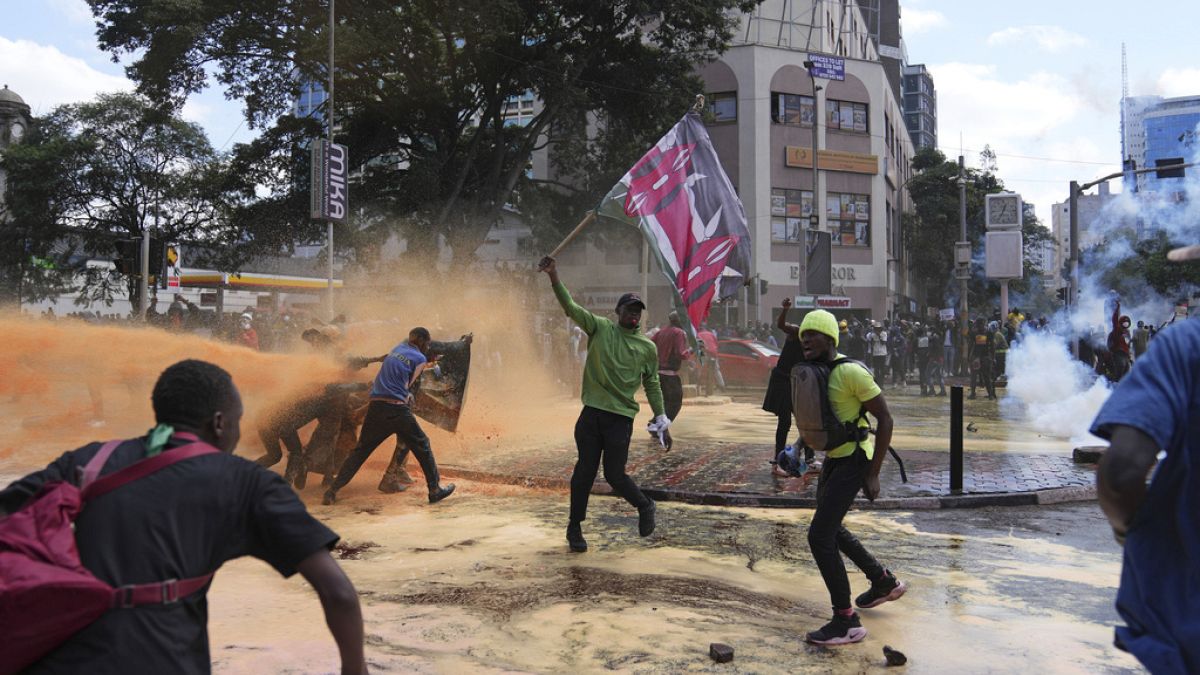In a shocking turn of events, thousands of protesters recently stormed parliament in a display of opposition to a new finance bill in East Africa’s economic hub. The protests turned violent, resulting in at least five casualties as demonstrators clashed with police and security forces. The bill, which proposed new taxes on the country, sparked outrage among the citizens, leading to widespread unrest and chaos in the capital.
The protesters, many of whom were youth, had demanded that legislators vote against the bill. Despite their pleas, lawmakers ultimately voted to pass the controversial legislation, prompting an escalation of tensions. As the situation intensified, protesters managed to outmanoeuvre the police and gain access to the parliament building, forcing legislators to flee through a tunnel to safety. While inside, the protesters allowed opposition lawmakers who had voted against the bill to leave unharmed, showing a degree of organization and strategic planning among the demonstrators.
The chaos inside the parliament building reached a breaking point as a fire broke out, further adding to the mayhem and confusion. However, the firefighters were able to extinguish the flames before they caused significant damage to the structure. The violent clashes between protesters and authorities have raised concerns about the country’s stability and the ability of the government to address the grievances of its citizens effectively.
The events that unfolded in the aftermath of the protests have underscored the deep-seated discontent and frustration among the populace regarding the government’s policies and decision-making processes. The violent nature of the demonstrations and the loss of life have overshadowed the underlying issues at hand, highlighting the urgent need for dialogue and reconciliation between the government and the people. The bill’s passage has undoubtedly widened the rift between the ruling party and the opposition, further polarizing an already divided society.
As the country grapples with the fallout from the protests, questions remain about the government’s ability to maintain law and order and ensure the safety and security of its citizens. The incident has also raised concerns about the country’s democratic institutions and the potential for further unrest and instability in the future. Moving forward, constructive dialogue and meaningful engagement between all stakeholders will be crucial in addressing the root causes of the protests and finding sustainable solutions to the issues at hand.
The protests and subsequent violence have drawn international attention to the country, underscoring the need for increased diplomatic efforts and support from the international community. The incident has highlighted the fragile nature of the country’s political landscape and the challenges facing its leaders in navigating through a period of uncertainty and upheaval. As the country seeks to heal and rebuild in the aftermath of the protests, a concerted effort must be made to address the grievances of the people and work towards a more inclusive and transparent governance system that upholds the rights and aspirations of all citizens.


























